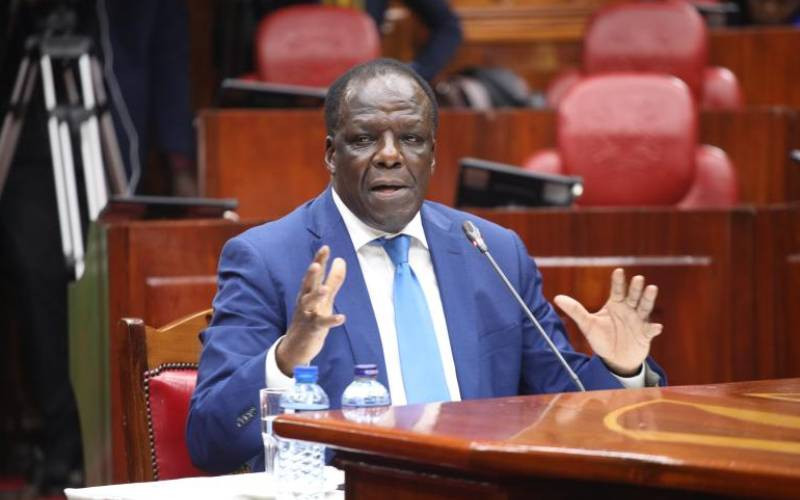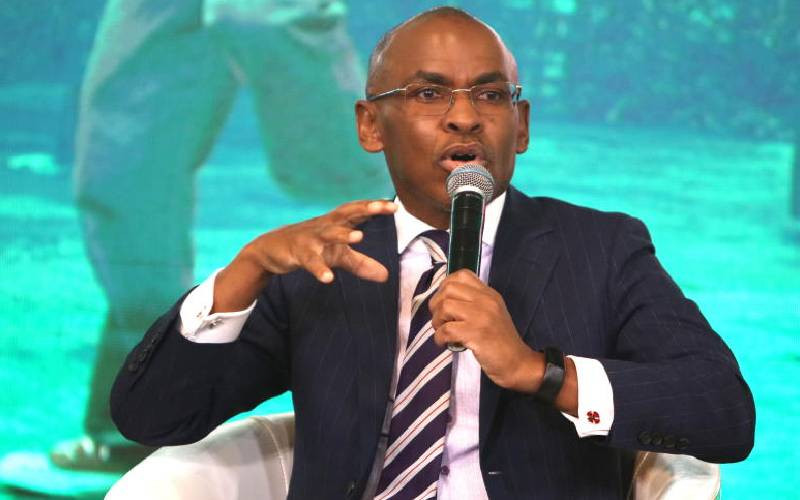
The genesis of micro, small and medium enterprises (MSMEs) can be traced to necessity. Long before they became an economic category or policy focus, micro and small enterprises emerged out of the need for survival, self-employment and local service delivery
In Kenya, these businesses have been part of our social and economic fabric for generations. Everywhere you turn, from the roadside vegetable stand to the tech-savvy fashion entrepreneur on Instagram, there’s a tale of hustle, hope, and grit. These are not isolated stories. They are what defines our country’s economy.
MSMEs are often discussed in terms of numbers: They contribute 40 per cent to our GDP, comprise 98 per cent of all businesses, and employ nearly 15 million people. However, behind these numbers lies a deeper truth: The real economy resides in MSMEs.
They are how most Kenyans earn, transact and survive. In this era, it is essential to address a central question: Are we doing enough to nurture and protect the segment that bears the weight of our economy?
The most common barriers that affect the success of MSMEs are not surprising, lack of working capital, poor access to markets, regulatory environment that feels more punitive than enabling, technology that’s out of reach and a financing system that rewards formality in a space where most remain informal by necessity, not by choice.




Promising businesses
Kenya has a financing gap of over Sh2.45 trillion in the MSME sector. That number becomes a painful reality when you consider how many promising businesses struggle, not because they lack drive or customers, but because they can’t bridge a cash flow delay or invest in basic growth.
The task ahead isn’t just about disbursing more credit or digitising more services. It’s about redesigning how we view MSMEs; it is a shift toward recognising informal creditworthiness, treating a business’s track record not as paperwork, but as lived performance.
More than financial access, it’s about removing hurdles so small businesses can continue to thrive.
The reality is that the road from survival to scale is a narrow one. Fewer than 15 per cent of MSMEs reach the level of formal registration or consistent profitability. Most operate in a precarious space, with little cushion for disruption. A delayed payment, a new tax, or a licensing fee can break them. Yet they remain, adjusting, innovating and pivoting.
We must begin to view MSMEs as part of a thriving marketplace, not a marginal sector. That means embedding them in value chains, not just giving them grants. That means buying from them, training with them and designing solutions that accommodate their realities.
Much of the discourse around MSME transformation revolves around digital tools and rightly so. But digitisation is not just about apps or dashboards. It’s about inclusion.
Many businesses are open to using digital platforms but face barriers to access. A mobile lending app may be convenient, but if the repayment terms are predatory, it can do more harm than good. A digital payment system is useful, but only if it integrates with how the business operates, not just how we imagine it should.
Any meaningful progress in the MSME space must pair access with support. Entrepreneurs need education, affordable data, technology that reflects the cadence of small business life – flexible, personal and responsive.
Stay informed. Subscribe to our newsletter
For a long time, the conversation about MSMEs has been confined to government halls and donor strategy papers, but the private sector has a critical role to play.
That role involves paying smaller vendors on time to simplify the procurement process and offering mentorship that is grounded in practice, not theory. They can also advocate for policy reform even when it is inconvenient.
If we are serious about inclusive growth, then we must be serious about investing not just in infrastructure, but in trust.
MSMEs do not want a seat at the table as an act of goodwill; they want it because they are already playing a critical role.
The truth is that the future is already here; it is just unevenly distributed. Kenya’s future will be shaped by millions of small bets made daily by entrepreneurs across the country. If we fail to support them, we not only miss an economic opportunity but also erode the social fabric that holds us together.
Support for MSMEs involves removing barriers. At other times, it is about listening keenly and consistently showing up with capital, infrastructure, and belief.
As we mark World MSME Day this week, my hope is that we recommit to the everyday economy – the economy of kiosks, side hustles, salons, boda shops, welders, agribusinesses, online boutiques and mobile vendors. These are not small things. They are the main thing.
The writer is the chief executive of Safaricom Group